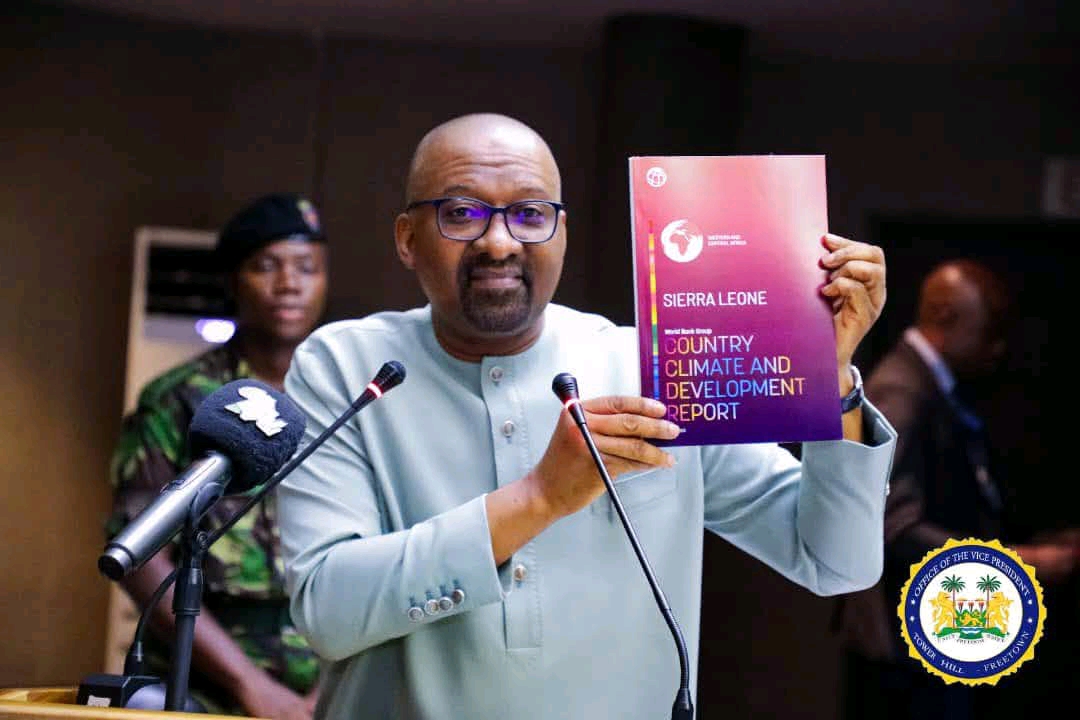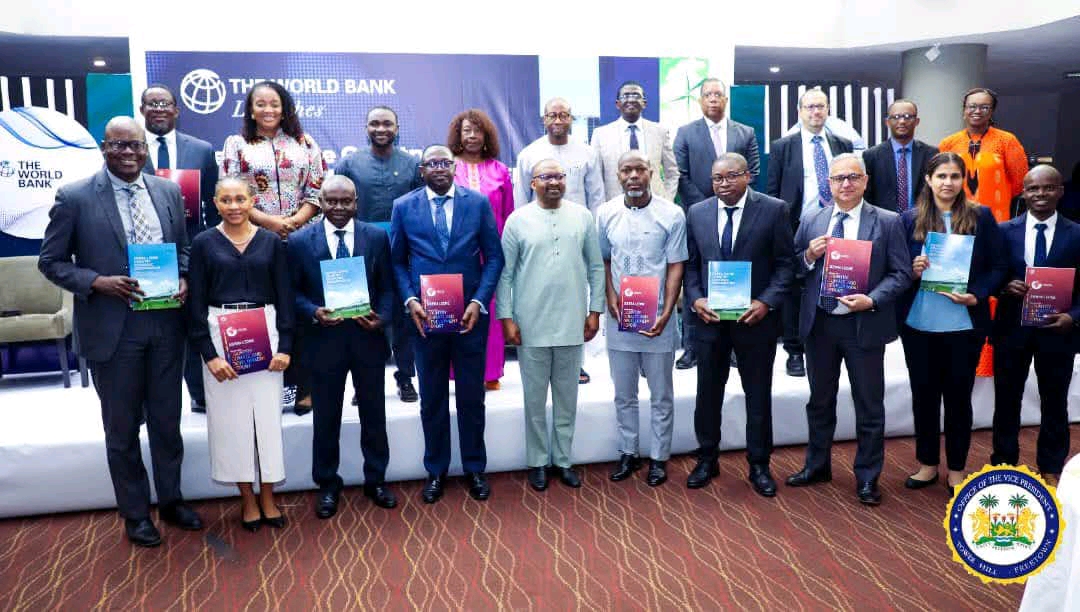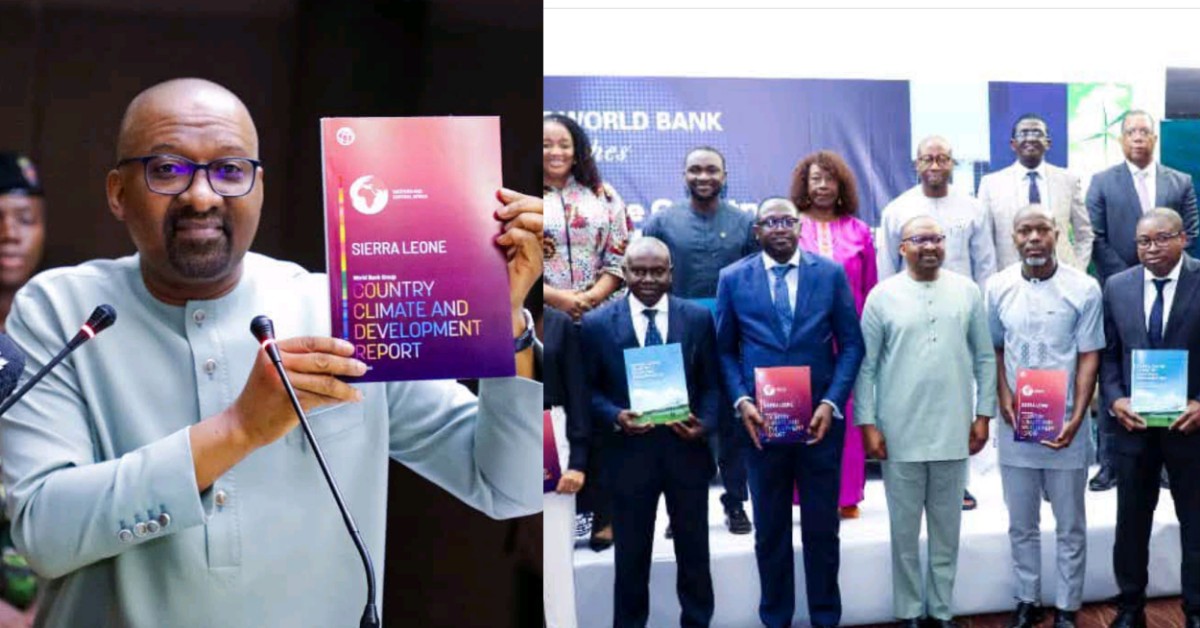Mohamed Juldeh Jalloh, Vice President of Sierra Leone, has officially launched two reports prepared by the World Bank: the Sierra Leone Country Economic Memorandum (CEM) and the Sierra Leone Country Climate and Development Report (CCDR).
The reports focus on the country’s economic growth path and the challenges of climate change.

Speaking at the launch, Jalloh said the Climate and Development Report provides a review of the progress made by the government while also drawing attention to ongoing challenges, including the threat of climate change. He noted that Sierra Leone’s Gross Domestic Product (GDP) could fall by 9 to 10 percent by 2050 if climate change is not addressed adequately. The report says climate change could affect agriculture, health, and infrastructure the most.
He said the Country Economic Memorandum offers a roadmap to use the country’s natural resources more effectively, improve human capital, attract foreign direct investment, and grow the private sector. According to the report, achieving this will require long-term reforms in areas like job creation, climate adaptation, and mitigation. The report also points to reforms needed to support economic stability, improve institutions, and increase investment in education and skills.

Jalloh said the reports identify key priorities to unlock Sierra Leone’s economic potential. These include restoring and maintaining macroeconomic stability, which involves growing the economy and managing government spending responsibly. Another priority is adjusting the government’s role to better support private sector development. The reports also point to promoting private sector growth by tackling challenges like access to finance, electricity, and land. Finally, building human capital through investment in education especially technical and vocational training is seen as essential. The need to prioritize climate action issues also stressed throughout the reports.

He said the Country Climate and Development Report outlines three key pathways for building climate resilience. These include developing green energy and sustainable cities. The report mentions that mini-grid solutions have already brought electricity to 140 small towns and villages across the country.
The second pathway focuses on promoting climate-smart agriculture and improving natural resource productivity. This includes the need for better adaptation to climate change.
Jalloh thanked the World Bank for the preparation of the reports and said there is a lot Sierra Leone can build on moving forward.











